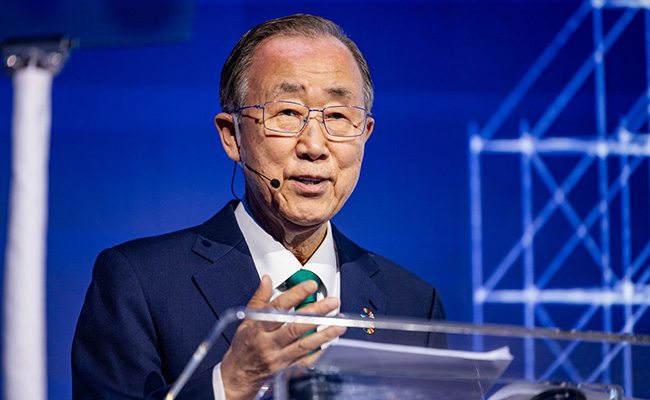Africa’s mobile operators are almost all showing huge growth in their blossoming financial services businesses, implicitly posing the question of how much more expansion is possible and what form it will take. But deals in the sector suggest this somewhat peculiarly African way of doing business has lots of road left to run.
The latest deal announced this week involves Jumo, the AI-driven financial technology company, which has secured a partnership with Orange, one of the continent’s largest mobile telephony operators. The transaction positions Jumo as the preferred technology partner for Orange’s fast-growing payments arm, Orange Money, enabling millions of Africans to access digital savings and credit products previously out of reach.
“We’re thrilled to be chosen as Orange’s partner,” Jumo CEO Andrew Watkins-Ball says in an interview. “Our job is to provide the banking infrastructure that allows large banks like Standard Bank, Ecobank and Absa to serve customers directly through mobile wallets. We don’t lend ourselves – we’re the technology enabler that makes it possible.”
Orange ran a competitive tender to select a pan‑African technology partner for its mobile money expansion before choosing Jumo.
Mobile telephony has long been Africa’s most powerful infrastructure. Operators like Orange, MTN and Safaricom have evolved beyond voice and data into mobile money services, transforming how people transact across vast geographies.
The scale is just huge: Vodacom’s full mobile‑money platforms – including its stake in Safaricom – processed $437.7bn in transaction value over the trailing 12 months, up about 19% year on year. Orange, which operates in 16 African countries, has invested heavily in its payments ecosystem.
For customers, the change is dramatic. Mobile wallets allow instant transfers across borders and bill payments, and the current innovations allow access to loans and savings. Africa has a mobile phone subscriber base of about 50% – much lower than other regions, which typically have a subscriber base of just under 80% of the population.
Reaching the unbanked
The partnership comes as demand for financial inclusion surges. Though mobile money has banked millions, the next frontier is offering meaningful financial products. “Many Africans now have mobile wallets, but banks must do more,” Watkins-Ball says. “That’s where we come in: we provide AI-driven infrastructure so banks can focus on offering better savings and credit products.”
Since its inception, Jumo has disbursed more than $8bn in loans to more than 31-million people across eight African markets, including Ghana, Kenya, Tanzania, Zambia, Uganda, Côte d’Ivoire, South Africa and Cameroon. In total, it has facilitated more than 248-million individual loans.
In 2025 alone, Jumo reports that banking activity on its platform has grown by more than 40% in just six months, according to Watkins-Ball. Loan sizes vary widely, from as little as $10 to as much as $10,000, reflecting the diverse needs of Africa’s mass market.
Jumo’s key competitive advantage is cost. Its AI-powered infrastructure makes serving a customer up to 23 times cheaper than traditional banking, allowing banks to reach previously unbankable populations.
At the heart of Jumo’s model is its proprietary big data engine, which processes 15,000 predictive features and hundreds of AI models to score credit risk. Unlike Western systems reliant on credit histories, Jumo builds profiles from anonymised mobile data, ensuring ethical and inclusive lending.
“Most customers are on prepaid phone plans,” Watkins-Ball explains. “So, instead of relying on a credit card or utility bill, we use mobile-generated data to match customers with banks offering suitable products.”
This model has proven so successful that Jumo claims to have consistently outperformed typical FICO benchmarks (a creditworthiness score) in loan repayment rates, according to company data.
Africa’s mobile financial services market is among the fastest growing in the world. According to consultancy GSMA, mobile money transactions in Sub-Saharan Africa exceeded $1-trillion in 2022, with operators increasingly partnering with banks to diversify offerings.
Jumo does compete with banks’ inhouse technology. But Watkins-Ball cautions that no single player can solve the continent’s financial inclusion challenge alone. “It’s completely unrealistic to think one role player has all the answers,” he says. “The opportunity is so vast that it requires an ecosystem – banks, mobile operators and technology providers like us – working together.”
The next phase will see Jumo integrating large banks into Orange’s payments environment across multiple countries, potentially reaching tens of millions of new customers.
“We’re very focused on the technology,” Watkins-Ball concludes. “Together with banks, we can do magic things for Africa’s customers.”
Top image: Rawpixel/Currency collage.
Sign up to Currency’s weekly newsletters to receive your own bulletin of weekday news and weekend treats. Register here.













